Bedouin Hospitality in Jordan
Everyone who ever visited Jordan will happily show you breathtaking photos of the enormous temples of Petra, all carved into red cliffs. They'll tell you about the otherworldly landscape of Wadi Rum (no wonder several Star Wars movies were filmed there), the interesting local food, and the amazing weather. But if you'll ask what impressed them the most about this country, many will answer: ‘Bedouin hospitality' - And they'll be right.
In Bedouin culture, the receiving of guests goes above and beyond what most of us can even understand - that is, every guest who visits them is treated like an actual member of their family!
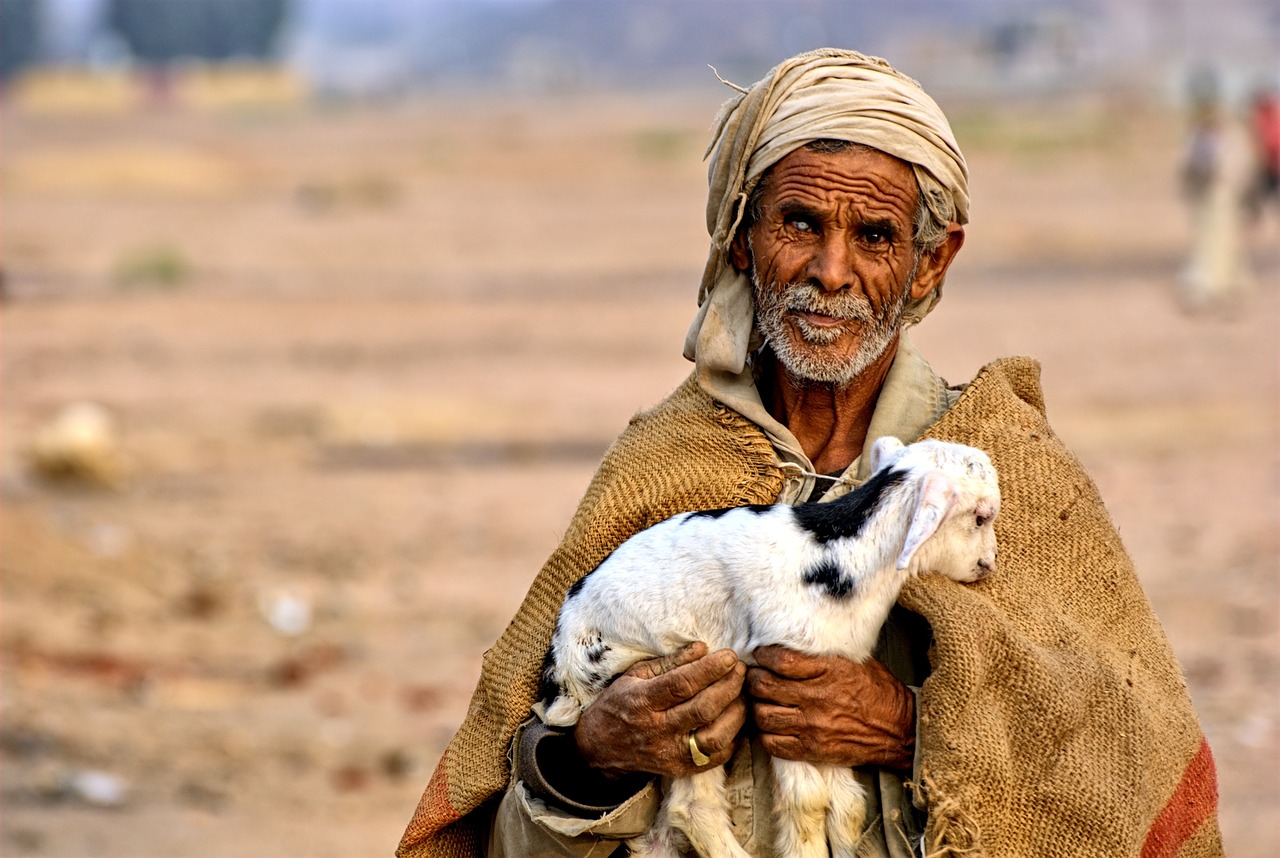 Jordan's amazing desert nomads are a fascinating culture
Jordan's amazing desert nomads are a fascinating culture
Indeed, in their tradition, anyone who arrives at their home must be welcomed in, no questions asked - and protected from any harm. Guests will be hosted for three days before they are even asked why they have arrived! For most westerners, this is beyond comprehension.
Who are the Bedouins?
The Bedouins are ancient Arab people, tribal in nature and living in extended families, who have spent thousands of years roaming the deserts of the Middle Eastern. In fact, in Arabic, Bedouin means ‘desert dweller’ and, historically, these are people who have practiced a nomadic lifestyle, wandering through harsh terrain across the Arabian Peninsula.
Independent and quick thinking, their animal-herding skills and ability to migrate into the desert (in the rainy season) and then continue onto cultivated land in the dry periods mean that they can survive in all kinds of adverse circumstances.
Bedouin girl in the Lost City of Petra (by Berthold Werner, CC BY 3.0)
Bedouins are organized in clans - every ‘tent’ (in which they dwell) is a family and these families connect to form clans. Within the clan, unconditional loyalty is demanded. Bedouin society is patriarchal and there is a structure of kinship, which you see in their wide networks of blood relations (all descended through the male line of course).
Leaders of clans then form a Council of Elders and although this Council doesn't have absolute authority, it is very powerful. In some situations, it is Sheikhs who rule the roost and in other smaller tribes, power is usually passed from father to son. Polygamy is also widely practiced and, not surprisingly, men with four wives will often sire large numbers of children!
Bedouin Culture in Jordan
The Bedouins in Jordan are one of the most well-known ethnic groups and many of today’s population are descended from them. What makes them so different from other groups is their wide-ranging kinship networks - the notion of community is taken extremely seriously.
The other thing that cannot be disputed is their incredibly rich culture. Like the fellow clansmen in the Egyptian Sinai, Saudi Arabian, and the Sahara in north Africa, their dress, dwelling places and customs are still easily recognizable.
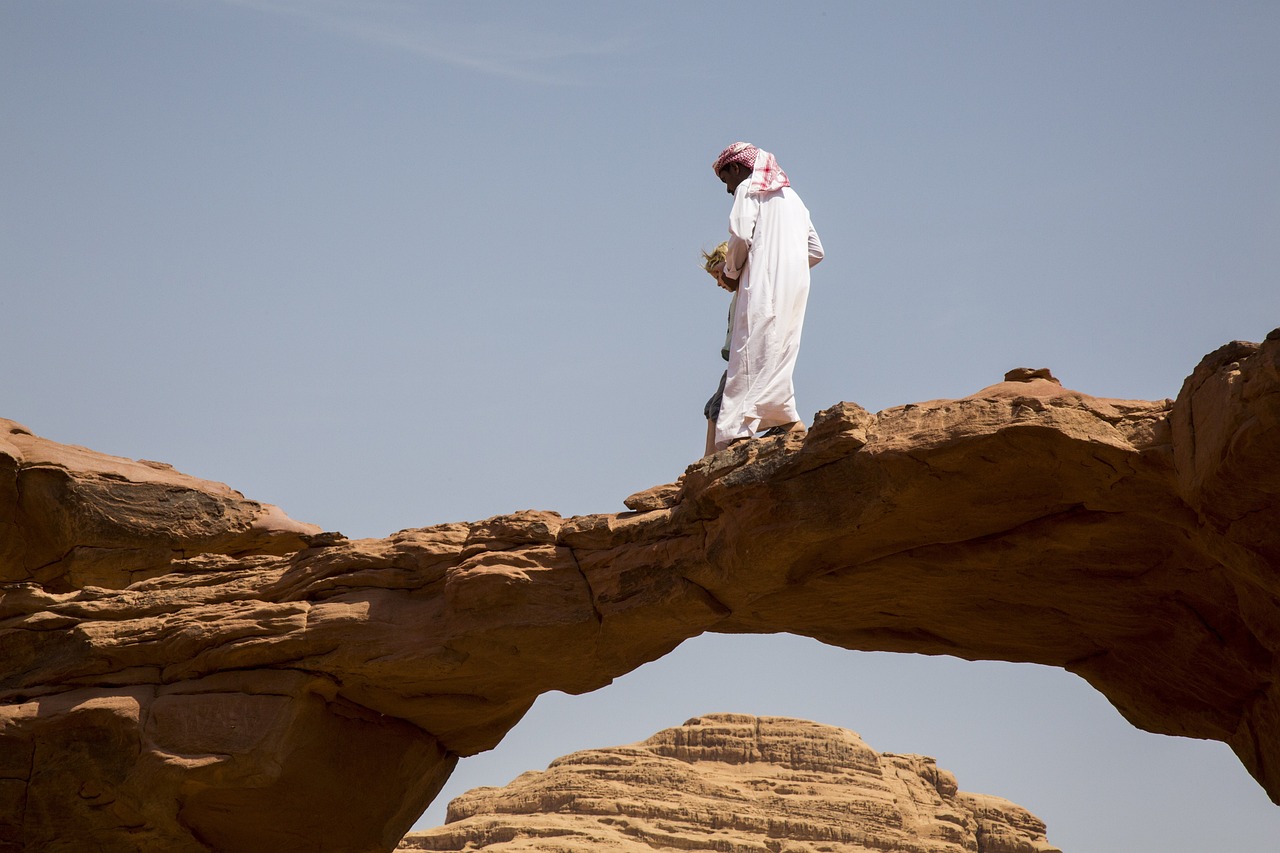 Bedouin passing a rock bridge, Wadi Rum
Bedouin passing a rock bridge, Wadi Rum
Bedouin Dress and Lifestyle
Bedouin men wear ‘galabia’ (long gowns) and a keffiyeh’ (scarf) atop the head. You’ll see Bedouin women in long black gowns (called abayas or thwabs) which are beautifully embroidered (often in bright colors) and have long neck openings.
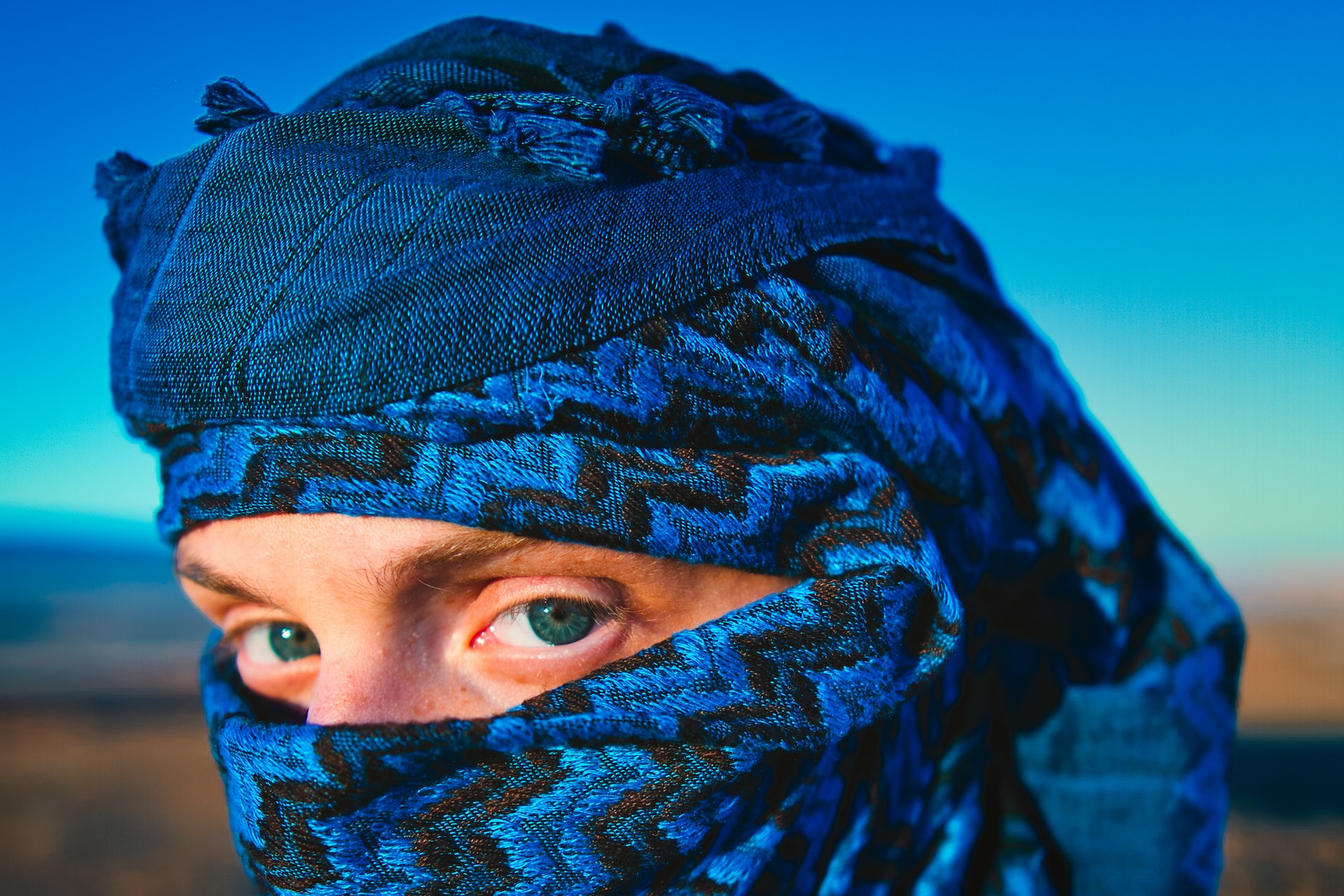 If you like it, you could get one yourself
If you like it, you could get one yourself
Bedouin hospitality: What can you expect?
If you really want to experience some authentic Bedouin hospitality, probably the best place to do it is in Wadi Rum.
This area of the desert, made famous by Lawrence of Arabia, is a fantastic place to head if you want to camp under the stars, marvel at rock formations like the famous Seven Pillars of Wisdom and the Um-Fruth Rock Bridge, hike in empty spaces, and learn more about a very ancient way of life. These kinds of things might include:
1. Drinking fantastic Arabic Coffee
Served on every conceivable occasion (from family dinners to weddings and funerals) this is one of the traditions visitors most appreciate when visiting Jordan. It really is a big production too - from roasting the beans, grinding them down, and then making the actual coffee on the fire, caffeine never tasted so good.
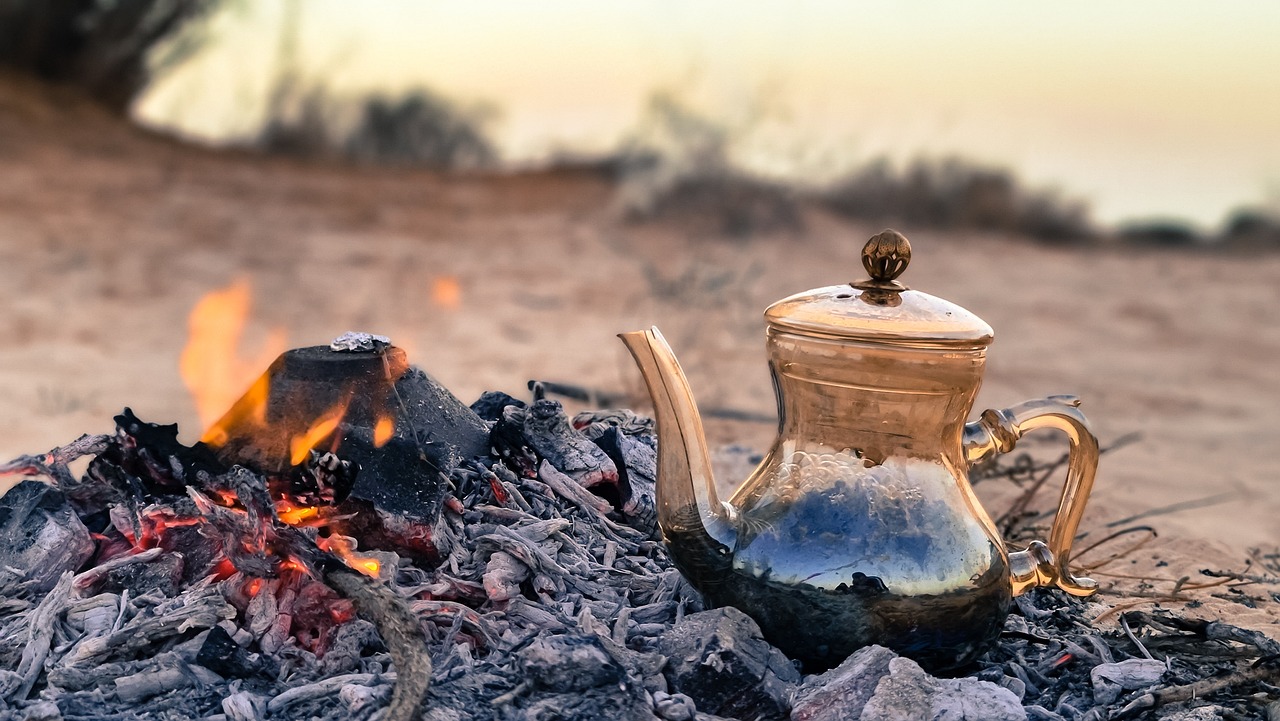 The best dark coffee you'll ever drink
The best dark coffee you'll ever drink
The traditional grinder that Bedouins used was often made of pistachio wood and it’s said that it would ‘play a melody’ as the beans were grinding. This meant that everyone in the neighborhood knew coffee was brewing and that they were invited over!
Today, when you arrive at Wadi Rum, it’s likely that the first thing your Bedouin host will do is invite you inside a tent, to drink Arabic coffee whilst you relax around the fire.
There is definitely a specific etiquette to all of this. A ‘typical’ coffee-making ceremony will involve some drumming, whilst the beans roast on the fire. Once they have been cooled, they will be ground in a stone mortar, into which cardamom pods will be added. Finally, it will be served to you in teeny tiny cups called ‘feenghal’. The Bedouin black coffee is just splendid: the strong, rich taste is unequaled, rivaled only by Turkish coffee.
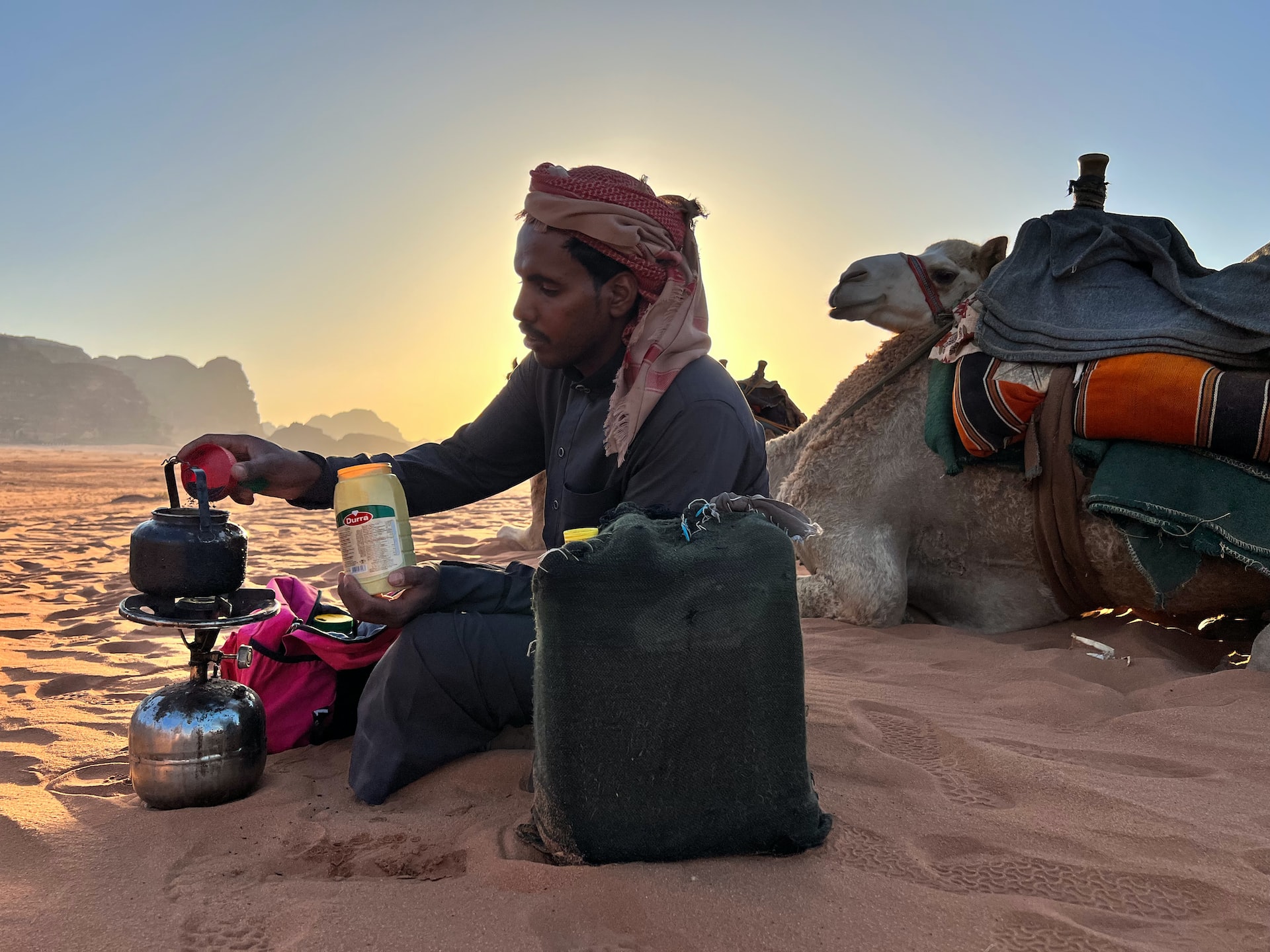 Bedouin making coffee
Bedouin making coffee
Fun fact: it’s traditional for Bedouins to serve their guests three cups of coffee - the first as a gesture of hospitality, the second for fun, and the third for protection now and in the future.
2. Eating Bedouin Bread
For Bedouins, ‘arbood’ is a staple food - something that men would eat at lunch, years ago, whilst wandering across the desert, taking care of their sheep and goats, often miles from anywhere.
It can also be made from just a few simple ingredients - flour, water, and salt, all kneaded together but then - and this is the twist - in a wood fire with hot ashes.
The bread is prepared in the easiest way imaginable and it’s not leavened. Since ovens are not readily available, it is cooked in another way - the dough is placed over ashes and then covered with ashes. The dough is then turned with a stick, throughout the bake, to make sure it’s cooked evenly on both sides and the result is wonderful - a little chewy and with a powerful and slightly nutty flavor.
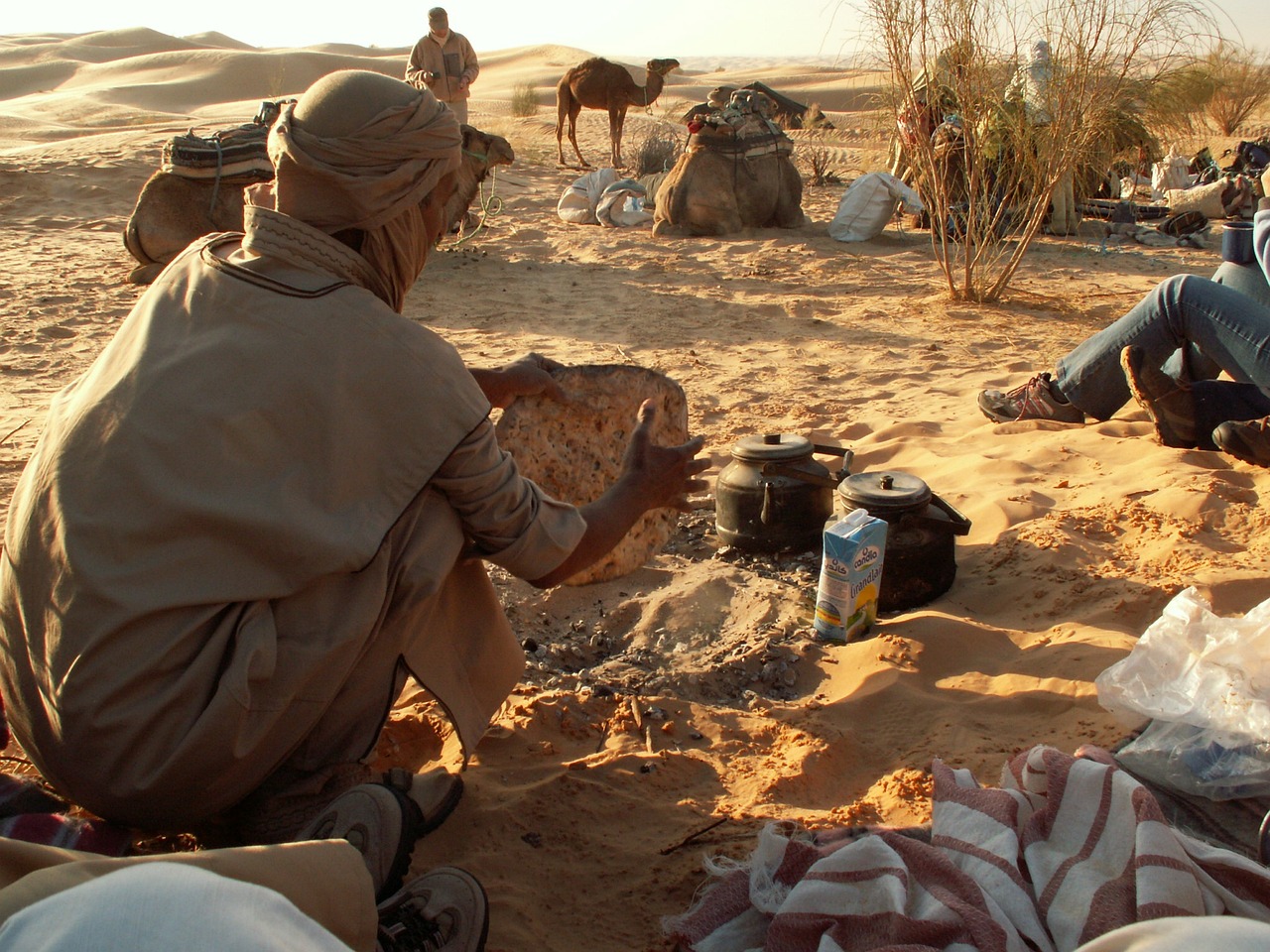 Bedouin Bread
Bedouin Bread
3. Learning how to Make Kohl Eyeliner
Women throughout the world use kohl as an eyeliner/mascara. What most don’t usually know is that it has an interesting history in the Arab world. For Bedouins, kohl is thought to protect against eye infections, not to mention strengthen eyesight, but is tied up with cultural tradition.
There are references to kohl in poetry and Islamic texts and, in years past, it was made from the ashes of a gum tree, which they then mixed with olive oil until it turned into a powder. Indeed, Bedouin men wore it because they believed it would protect them both against sandstorms and the ‘evil eye’.
Today, it’s an integral part of a woman’s beauty ritual and it is possible to watch it being made by local women before it is applied to your eyes!
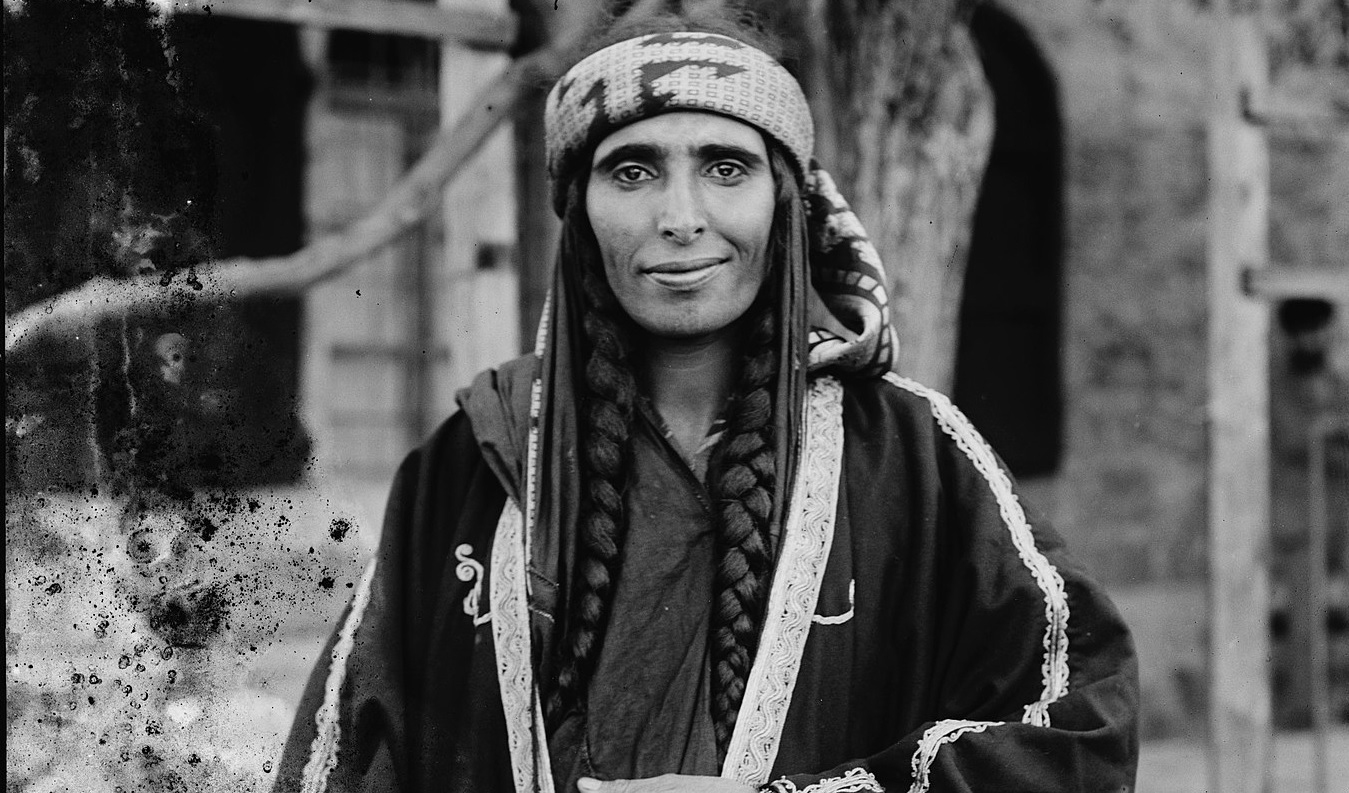 Bedouin woman
Bedouin woman
4. See the Weaving of Goat-Hair Tents
For hundreds of years, the Bedouins have been making their own tents, out of animal hair. And it really isn’t as easy as it looks because apart from the fact that it needs to be done in the dry season (when the weather is already hot) it’s quite an effort, physically!
In the past, these tents needed to be easily put up dismantled and transported and it was traditional to use either camel or goat hair that was densely woven. Mixed in with vegetable fibers, it became a fabric they could put over the poles.
Today, many Bedouins still live in tents {called Bayt al-shar in Arabic) which are made out of black goat hair and, inside, divided with cloth curtains into areas for men, women, and cooking. Goat hair is a good material to use as it is ‘breathable’ and provides dense shade during the day and a little heat at night.
If you do get a chance to see something like this, it is incredible to watch. The hair is spun into strands by Bedouin women who then weave it together into panels. It really is a simple and elegant design, and it makes you realize how the old ways could sometimes really be the best.
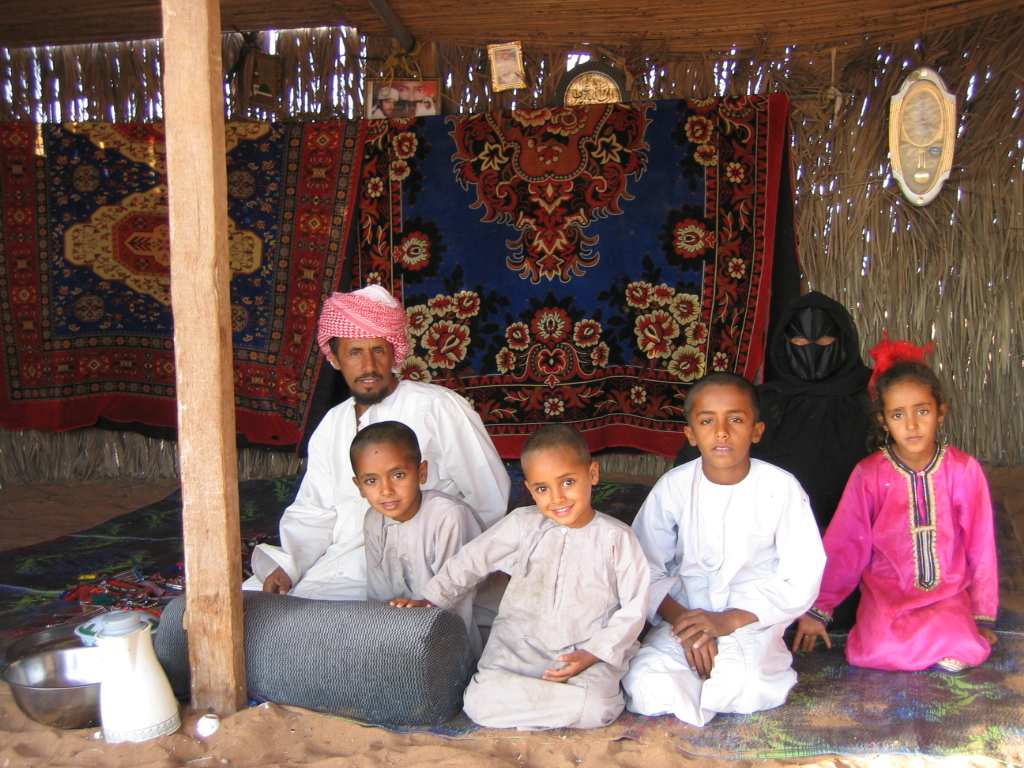 A Bedouin Family (by Tanenhaus, CC BY 2.0)
A Bedouin Family (by Tanenhaus, CC BY 2.0)
How do you get to Wadi Rum, Jordan?
Many tourists travel to Israel and Jordan on the same vacation; They usually start in colorful Tel Aviv or majestic Jerusalem, then go south toward Eilat - Israel's best beach resort city. From there, they cross the border to the kingdom of Jordan and take a 2.5-hour ride through the enchanting desert.
Israel and Jordan tours are the best way to see both countries knowing you won't miss any attractions, and enjoy the sights worry-free. For example, you can enjoy Eilat's wonderful coral beach and tax-free malls, then embark on a 2-day Petra and Wadi tour.
 Login / Register
Login / Register
 Contact Us
Contact Us
 Certificate of Excellence
Certificate of Excellence Guaranteed Departure
Guaranteed Departure Low Prices Guaranteed
Low Prices Guaranteed 24/7 Support
24/7 Support




